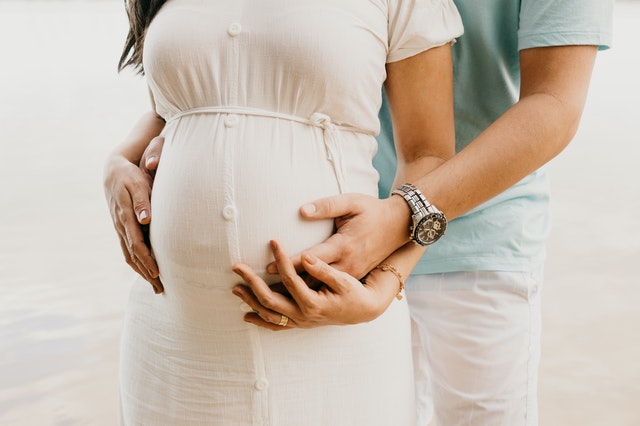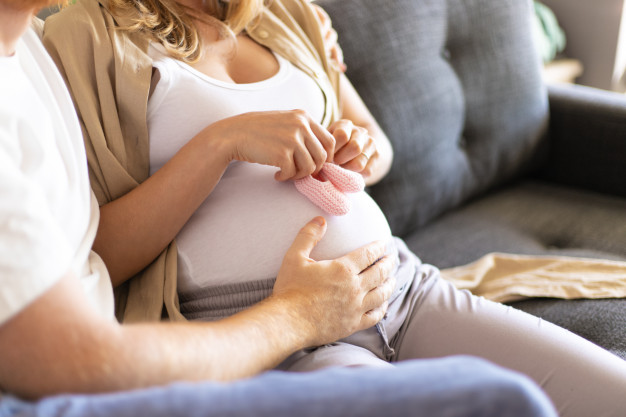The due date is near, and you are probably waiting in happy anticipation for the D-day. The day you have been waiting for months while decorating the nursery of your little one. You are about to become a mother! So how to know when you are in labor, and this is not just a false alarm. It is especially difficult for women experiencing labor for the first time. Predicting your labor or noticing your pre-labor signs helps you be prepared and avoids the last-minute rush.
Every birth is different, so it might be tricky to predict your labor. But there are some tell-tale signs that you are about to meet your little one.
Labor sets off with the uterus’ contractions, which pushes the baby out of the mother’s womb and results in childbirth.
If you are nearing your due date, you might wonder how to confirm when you are in labor. Here are some signs which help you determine when you have entered the pre-labor stage. The symptoms can start showing from a month or a day before the labor.
Related Article: Freezing Embryos: A Lot Of People Are Turning For This Option
- Your baby drops or descends into your pelvis.
Baby drop is a case that especially occurs in women’s first pregnancies, and the baby will start descending into the pelvis. The baby drop happens around two to four weeks before the labor begins. But the duration before the labor varies from case to case.
In the later pregnancies, this does not happen unless you’re already in labor. Your kid is getting in a position to make his way out, preferably with his shoulders down and his head out.
You might notice that you waddle even more than before. And you might still make frequent toilet breaks as you have probably been doing in the third trimester because your baby’s head is now pressing down your bladder.
Suggested Topic: Announcing Pregnancy: These Are The 15 Best Ways To Do That
- The cervix dilates.
During your weekly home pregnancy check-ups, your provider may measure and track dilation and through an internal test.
But pregnancies progress differently, so do not be disheartened in case of slow or no dilation.
- Increase in cramps and back pain.
Particularly if this is not your first pregnancy, you may feel some cramping and pain in your lower back and pelvic area as your labor nears. Your muscles and joints stretch and shift in preparation for birth.
- You are clumsier
Your body releases the relaxin hormone during your pregnancy, which allows your ligaments to ease up a little. This hormone is the reason why you felt clumsy in the last trimester.
Before you go into labor, you can find that the joints around your body feel comfortable. It is just nature’s way to open your pelvis to your little one to make his way into the universe.
Also Read: How To Talk To Your Partner About Fertility Issues
- Diarrhoea.
As the muscles in your uterus are relaxed preparing for birth, so are the other muscles in your body—including those in the rectum. And that can escalate to diarrhea, which is a severe labor symptom that you might have encountered at other periods during pregnancy.
- Weight loss or weight stagnates.
Weight gain is often reduced at the very end of pregnancy. Some mothers even lose a few pounds. It is normal and will not affect your child’s birth weight. Your weight is falling due to reduced levels of amniotic fluid, more toilet breaks, and maybe even more exertion.
- Feeling tired or feeling the need to organize.
The big belly, combined with your cramped bladder and other organs, will make it difficult to get a decent night’s sleep during the last days and weeks of pregnancy. So pile up your pillows and take your naps while you can, if at all possible.
That is until you feel the reverse of being super sleepy. Some moms get a surge of enthusiasm called nesting instinct, and you cannot fight the compelling desire to tidy up and organize everything in reach.
Early labor symptoms: the days or hours before labor.
- Losing your mucus plug and having thickened vaginal discharge
You may note your mucus plug comes out in one big piece or many little ones, but you do not get a sight of it at all because certain women won’t lose it before birth.
You will see thickened vaginal discharge in the last days before your labor. This thickened, pinkish discharge is considered a bloody display, a clear sign that you are going into labor.
But labor may still be a few days away without contractions or dilatations of 3 or 4 centimeters.
- You feel stronger, more frequent contractions.
Contractions are a sign of labor, but in some cases, they are not. Braxton Hicks contractions or practice contractions is a fake alarm. Even though you feel the squeeze when the muscles in your uterus tense up in anticipation for their big moment: force the baby out.
In case of real labor:
- Contractions get progressively stronger.
- Despite changing positions, labor contractions do not go away.
- True contractions develop, getting more intense and uncomfortable as time progresses, frequently falling into a regular pattern.
- Your water breaks
The water break is one of the last signs of labor faced by most women—and it happens to just about 15 percent of births or less. So please don’t wait for it.
Suggested Article For You
WHEN TO GO TO A DOCTOR? FROM PREGNANCY TILL BIRTH
Testing positive for pregnancy is beautiful as well as exciting. But the first thought that comes to your mind is when to visit your doctor? Here we have highlighted some points, from the beginning of your pregnancy journey to the final delivery. Read More:
![]()











